
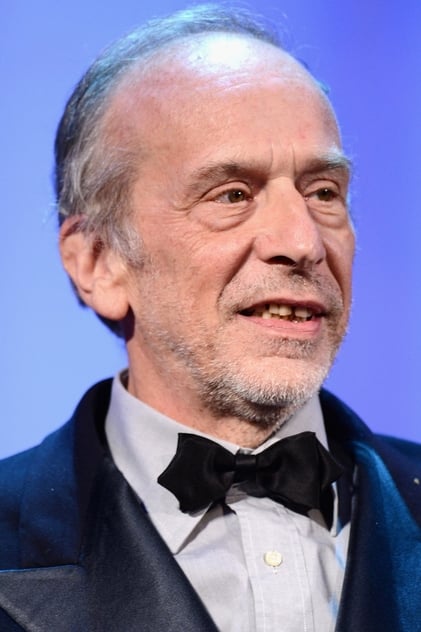
Renato Berta
Born: March 2, 1945
in Bellinzona, Ticino, Switzerland
in Bellinzona, Ticino, Switzerland
Renato Berta is a Swiss cinematographer and film director, best known for his collaborations with directors Alain Tanner and Jean-Marie Straub. Trained at the Centro Sperimentale di Cinematografia in Rome, Berta has worked as cinematographer in more than 100 films since 1969. He won a César Award for Best Cinematography for Au revoir les enfants in 1988 and a David di Donatello for Best Cinematography for Noi credevamo in 2011.
In 2013, he was awarded the Chevalier of the Ordre des Arts et des Lettres.
Source: Article "Renato Berta" from Wikipedia in English, licensed under CC-BY-SA 3.0.
In 2013, he was awarded the Chevalier of the Ordre des Arts et des Lettres.
Source: Article "Renato Berta" from Wikipedia in English, licensed under CC-BY-SA 3.0.
Movies for Renato Berta...

Title: Renato Berta, face caméra
Character: Self
Released: May 3, 2022
Type: Movie
Renato Berta, director of photography who won a César in 1988, this time appears in front of the camera under the direction of Paul Lacoste, who retraces the creative process of the Swiss filmmaker. Between archive images and anecdotes about his shoots with the greatest independent directors of his time (Jean-Luc Godard, Claude Chabrol and even Louis Malle...), Renato Berta confides how, from a script, he imagines the scenes of a film.

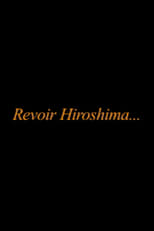
Title: Revoir Hiroshima...
Character: Self
Released: December 31, 2013
Type: Movie
Davide Pozzi, who oversaw the delicate process of scanning the original camera negative, discusses the restoration of Alain Resnais' 1959 film HIROSHIMA MON AMOUR with cinematographer Renato Berta, a special consultant on the project.

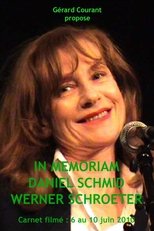
Title: In Memoriam Daniel Schmid Werner Schroeter
Character: Self
Released: July 3, 2012
Type: Movie

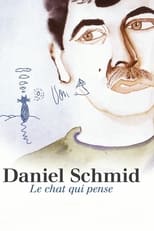
Title: Daniel Schmid: Le Chat Qui Pense
Character: Self
Released: September 2, 2010
Type: Movie
When director Daniel Schmid grew up, his parents ran a hotel in the Alps, and this singular setting was to influence his film. Rather by coincidence he came to Berlin in the early 1960s and became part of the new German wave. Schmid worked with, among others, Wenders and Fassbinder, for example as an actor in Wender’s The American Friend. He met Ingrid Caven, who was to play a diva in several of his films. This is a documentation of a part of modern European film history and a good analysis of artistry and how it corresponds to the individual behind the camera. A wealth of archival footage brings us close to many directors and actors in Schmid’s circle. If you’ve never seen a Daniel Schmid film, you are sure to want to after watching this portrait of his life.


Title: Les avatars de la mort d’Empédocle
Released: August 11, 2010
Type: Movie
In the summer of 1986, Danièle Huillet and Jean-Marie Straub were working in the park of an old Sicilian mansion and in a clearing at the foot of Mount Etna shooting Der Tod des Empedokles. Assistant cameraman Jean-Paul Toraille toyed around, so to speak, with his first video camera, filming the daily work on the set. Now, 24 years later, he was joined by Jean-Marie Straub in editing the material into a film. Anyone who expected the shooting of Les Avatars de la mort d’Empédocle to be an austere affair, an exercise entirely devoid of humour or a Straubian tour de force is proven wrong: so much lightness, joy, concentration, spells of waiting for the sun to come out – and even proper slapstick in between – is hard to find.

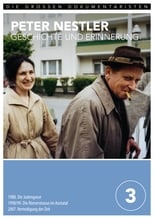
Title: Verteidigung der Zeit
Released: May 22, 2007
Type: Movie
Peter Nestler's poetic documentary Verteidigung der Zeit is not only an hommage to Jean-Marie Straub's and Danièle Huillet's film Quei loro incontri (2005), but also to their access to cinema itself. In various encounters and conversations Nestler offers an insight into their life and work, including passages from Italian poet Cesare Pavese.

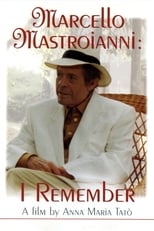
Title: Marcello Mastroianni: I Remember
Character: Self
Released: September 10, 1997
Type: Movie
In 1996, Marcello Mastroianni talks about life as an actor. It's an anecdotal and philosophical memoir, moving from topic to topic, fully conscious of a man "of a certain age" looking back. He tells stories about Fellini and De Sica's direction, of using irony in performances, of constantly working (an actor tries to find himself in characters). He's diffident about prizes, celebrates Rome and Paris, salutes Naples and its people. He answers the question, why make bad films; recalls his father and grandfather, carpenters, his mother, deaf in her old age, and his brother, a film editor; he's modest about his looks. In repose, time's swift passage holds Mastroianni inward gaze.
